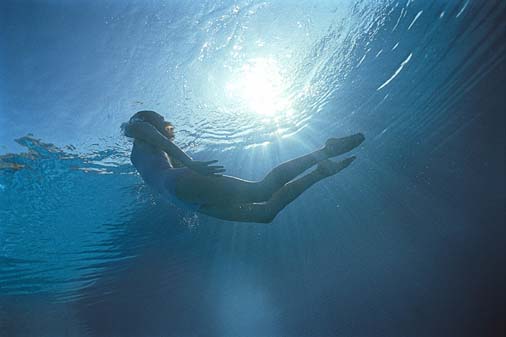Breathing Under Water: Living With and Lying About Chronic Fatigue Syndrome
In the summer of 1991, an interloper foiled the bouncers guarding my immune system, ducked under the velvet ropes, and broke into my DNA. The miscreant might have been Lyme, Epstein-Barr, Herpes VI, or any combination of these viruses, in cahoots with some as-yet-unidentified evil-doer.
The vandals left me with drastically reduced mental and physical functioning, a state eventually diagnosed as Chronic Fatigue and Immune Dysfunction Syndrome.* I’m a different person than the exuberant young woman I was before, the person who could exercise twenty hours a week on top of a demanding, multi-tasking financial communications job, run around town with my husband and friends and then stay up until the wee hours writing short stories.
Having CFIDS means I’ve had to quit or radically cut down on most of these activities. It’s also meant getting used to being labeled a hypochondriac, mentally ill, an alcoholic, and a drug addict.
What’s it like? Imagine looking at this page and not being able to read it, to see only bugs jumping around. Or peering into the kitchen cabinet and not recognizing the box of Cheerios —you see the yellow box, but don’t know what it is. Or driving a familiar route and suddenly not knowing where you are or how to use the instruments on the dashboard panel.
When people think “disabled” they think of someone flat-out in bed, in a wheelchair. CFIDS is sporadic and invisible. Nobody can tell from talking to me that my I.Q.’s dropped from 138 to 77.
(from Breathing Under Water: Living With and Lying About Chronic Fatigue Syndrome)
http://onpoint.whttp://onpoint.wbur.org/2015/02/16/me-cfs-chronic-exhaustion-syndrome
*Today, NPR ran a comprehensive show featuring a panel of experts, on changing the name from Chronic Fatigue Syndrome to Systemic Exertion Intolerance Disease

